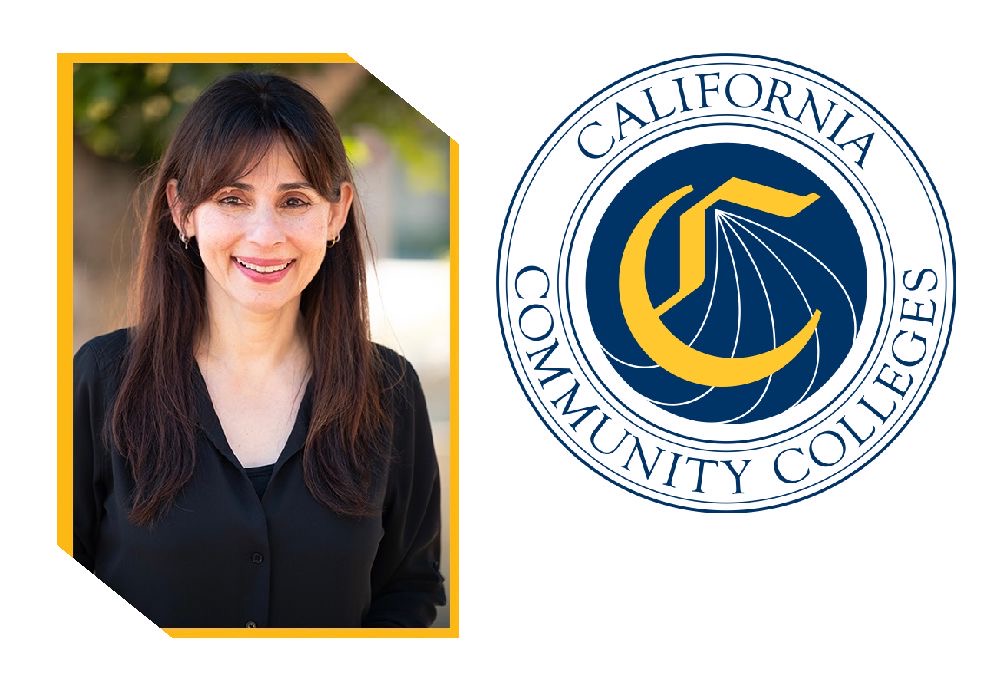The new chancellor of California Community Colleges (CCC), Sonya Christian, unveiled a six-year equity plan for the statewide college system during the first student media teleconference of the 2023-24 academic year, held on Sept. 21.
Christian, who earlier this year became the first permanent female chancellor in CCC’s history, presented an overview of the plan known as Vision 2030 to improve equity at California’s 116 community colleges in three areas: success, access and support.
The chancellor suggested that community colleges have a duty as open-access institutions to help improve the career opportunities of the 6.8 million Californians who work low-paying jobs with no educational credentials beyond a high school diploma. “We are going to come and bring college to you,” Christian said, “so that there are no barriers between a Californian and their community college.”
Equity in support entails the improvement of outreach efforts that deliver financial aid information and work-based learning opportunities to underserved communities. This sector of the plan also aims to expand student access to healthcare resources, which Christian said is particularly crucial since the Covid-19 pandemic exposed the weaknesses in national healthcare systems.
In terms of access, Christian affirmed that the Chancellor’s Office has already begun working to increase accessibility and participation in dual enrollment programs among historically disadvantaged students so as to jumpstart their college education and career exploration.
The plan — which Christian helped develop with the CCC Board of Governors during her first three months as chancellor, beginning in June — also seeks to expand student eligibility for, and receipt of, state and federal grants.
To achieve equity in success, Vision 2030 aims to increase full-time enrollment, transfer rates, and the completion of certificates and degrees, especially among low-income students. It also focuses on increasing access to higher education by providing baccalaureate programs to community college students.
In response to a Los Angeles Valley College reporter’s concerns that college degrees might become less attainable after the recent tuition hike in the California State University system, Christian explained that a 2021 amendment to Assembly Bill 927 expanded the community college bachelor’s degree program, allowing a maximum of 30 program approvals per year for each district.
In order to propose a baccalaureate program, community college districts must supply “evidence of unmet workforce needs” in the industry relating to the proposed bachelor’s degree, according to the assembly bill. For example, LAVC instituted a baccalaureate program for respiratory therapy in response to the new labor demand generated by the Covid-19 pandemic.
Christian further explained that program proposals also undergo a duplication review process during which CSU and University of California systems can submit objections on the basis that they already provide such programs.
Although this challenges the traditional notion of “two-year” colleges, the bill includes provisions that prevent their conversion into full-fledged universities. In each community college district, the number of bachelor’s degree programs cannot grow larger than 25 percent of the total size of the associate’s degree programs.
Christian also announced that in response to concerns about the growing use and impacts of artificial intelligence in higher education, the CCC Chancellor’s Office has partnered with the statewide Academic Senate and Faculty Association to host a four-part webinar series beginning Sep. 25.
In these meetings, faculty members from across the state will re-evaluate their intended learning outcomes and discuss how they might incorporate A.I. into their instruction in an “effective, intentional, and customized manner.”
“We don’t want to be reactive; we want to be proactive,” Christian said, acknowledging that there are many potential benefits associated with A.I. in addition to many concerns about its impact on the learning experience. After working for years as a math professor, she said she learned that often the best approach to innovative technology is “not being fearful, [but] being thoughtful.”
These sentiments also reverberate in Vision 2030’s environmental provisions, which call for the construction of sustainable infrastructure and workforce training centered around innovative “green” technology. Christian emphasized the proposal for curricular revisions across a broad range of academic departments so as to reflect the urgency of the current climate crisis and instill a sense of environmental awareness and responsibility in students.
Christian said she has already heard a number of stories from CCC faculty leaders about the ways in which they have implemented the beta version of Vision 2030 at their campuses. “Many components of it have been adopted by the colleges. Their trustees are talking about it and customizing it to their local populations of students.”
Following revisions of the plan, the Chancellor’s Office will present a final version of Vision 2030 for approval by the CCC Board of Governors in January 2024.





































































